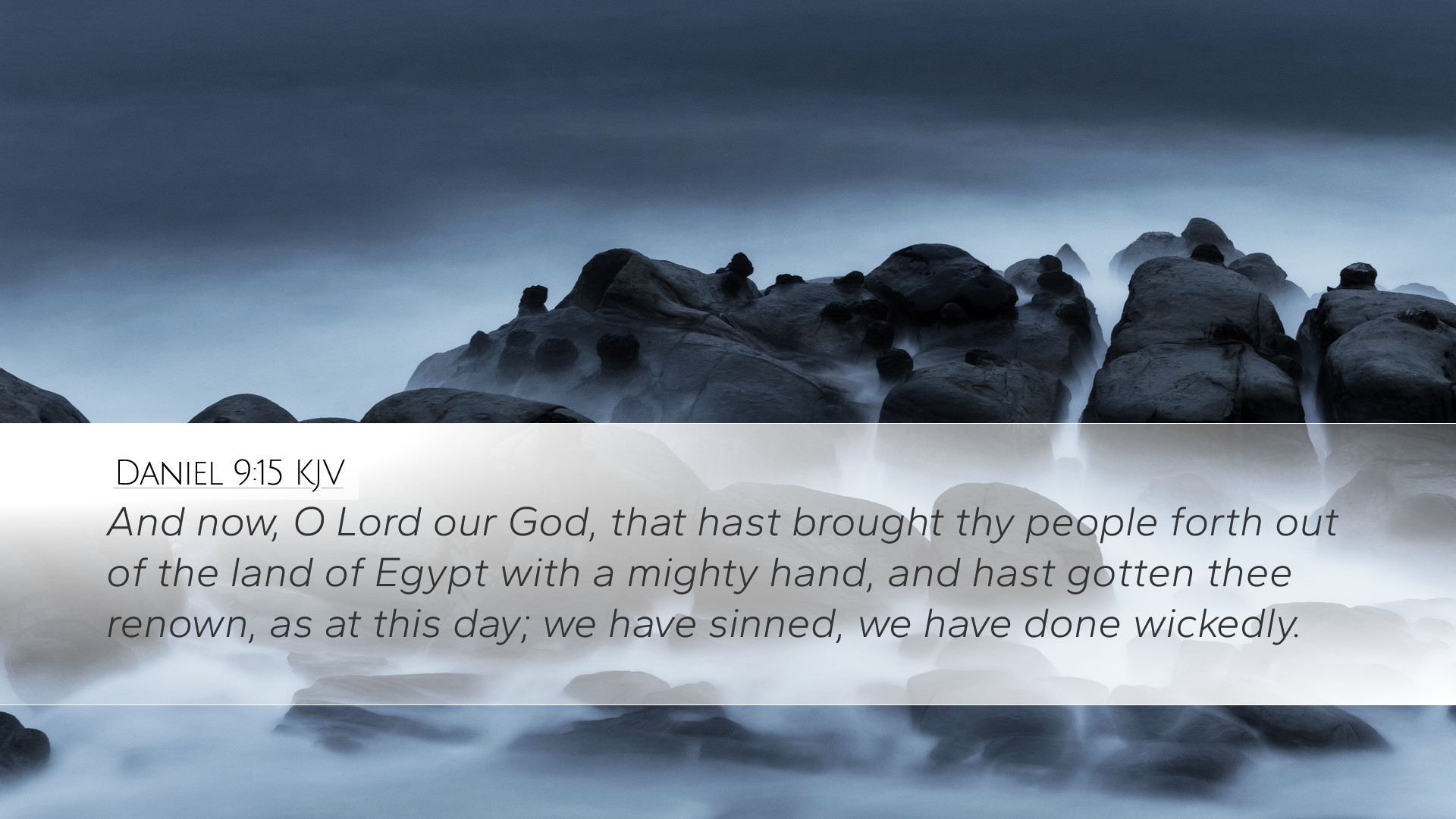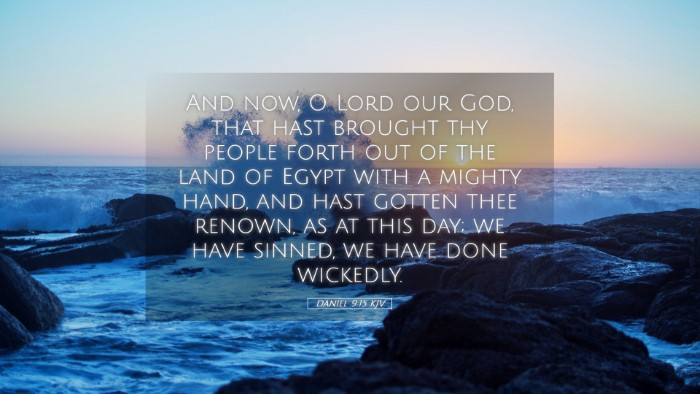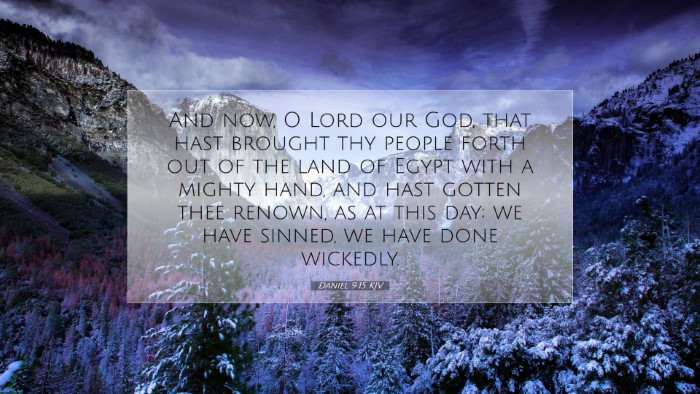Commentary on Daniel 9:15
Verse Text: "And now, O Lord our God, that hast brought thy people forth out of the land of Egypt with a mighty hand, and hast gotten thee renown, as at this day; we have sinned, we have done wickedly."
This verse serves as a pivotal moment in Daniel's prayer of confession, where he reflects on God's past actions and the consequent calamity faced by Israel due to their transgressions. The commentaries underscore the significance of remembrance in prayer and the critical nature of acknowledging sin before God.
Insights from Matthew Henry
Matthew Henry emphasizes the theme of God's power and renown, which is rooted in the historical Exodus of the Israelites from Egypt. He outlines several key aspects:
- The Declaration of God's Greatness: Henry notes that Daniel acknowledges God as the one who brought the people out of Egypt "with a mighty hand." This highlights God's sovereignty and miraculous deliverance, serving as a reminder of God's faithfulness to His covenant.
- Recognition of Human Sinfulness: The phrase "we have sinned" indicates a collective acknowledgment of guilt. Henry points out that true repentance requires the recognition of personal and communal sin, which is essential for restoration.
- The Historical Context: Drawing from Israel's history, Henry reflects on how the deliverance from Egypt set a foundation for God’s people. Daniel’s prayer connects Israel's past to its present reality, urging a return to faithfulness.
Insights from Albert Barnes
Albert Barnes provides further theological depth by analyzing the implications of this verse in light of divine characteristics:
- The Nature of God’s Renown: Barnes observes that Daniel appeals to God's reputation for holiness and justice. He argues that God’s fame is not merely in acts of power but also in His moral governance, indicating that the consequences of Israel's sins affect God's honor.
- The Collective Confession: Barnes emphasizes that the "we have sinned, we have done wickedly" serves as a model for corporate repentance. He interprets this as an acknowledgment of shared culpability, entering into a communal confession that reflects the unity of the people in their disobedience.
- The Urgency for Restoration: He notes that Daniel's plea for mercy based on God's past works indicates a profound understanding of how God interacts with His people—where there is sin, there must be a pursuit of reconciliation through earnest prayer.
Insights from Adam Clarke
Adam Clarke elaborates on the significance of Daniel's historical reference as a mechanism for invoking divine attention:
- The Theological Framework: Clarke asserts that Daniel invokes God's historical actions to affirm His ongoing commitment to His people. He analyzes the structure of the prayer, where recalling Egypt serves to reinforce God's role as a covenant-keeping deity.
- The Role of Prayer in Confession: Clarke indicates that Daniel’s prayer is not only a cry for mercy but also an instructional model for believers, prompting them to remember God’s past deliverances when seeking help in their present tribulation.
- The Moral Call to Holiness: He reflects on the necessity of personal and collective moral integrity, linking spiritual revival with the willingness to confess sin and seek renewal by looking steadfastly at God’s merciful character.
Theological Reflection
In summary, Daniel 9:15 offers profound insights into the nature of prayer, confession, and divine grace:
- The Call to Remember: A recurring theme in the scriptures is the importance of remembrance—both of God’s deeds and of our failings. This dual remembrance is vital in cultivating a spirit of humility and dependence on God.
- Corporate Identity and Responsibility: This verse invites readers, especially church leaders and scholars, to consider the implications of corporate sins and the necessity of collective repentance in ecclesiastical contexts.
- Hope Through History: Daniel’s reflection on God’s past deliverance provides assurance that God’s character has not changed. This offers hope to believers who seek restoration, reinforcing the truth that God remains faithful even when His people falter.
Conclusion
Daniel 9:15 encapsulates the essence of prayerful confession and the importance of recognizing God's eternal nature and His past works as a framework for repentance. For pastors, students, and theologians, it serves as a reminder of the continuity of God’s covenant with His people through history and the perpetual opportunity for reconciliation and spiritual renewal.


